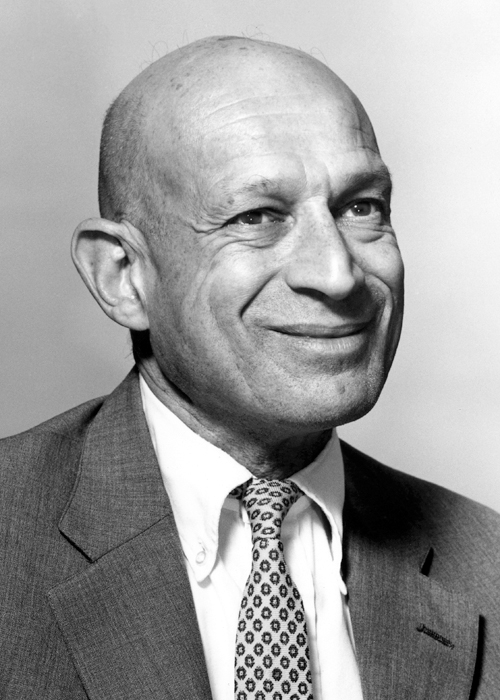If you’ve heard of economist Julian Simon before, it is likely because he came up with the idea of vouchers as a solution to airline overbooking (Simon 1968), or won a famous bet against biologist Paul Ehrlich (Sabin 2013). However, Simon should be of special interest to Catholic economists since the lion’s share of his career was spent making the case that population growth is not inimical to—but rather the source of—economic growth. He was aware that his work was complementary to CST and applauded the Church for being “almost the only institution that celebrates human life as such, and asserts that another human being enabled to enjoy life is a good in itself” (Simon 1994). Fighting against the “we are the virus” view and its various forms, Simon’s arguments are worth reframing in light of the real virus we fight today. In particular, he consistently emphasized two points: 1) “the ultimate resource is people,” and 2) “necessity is the mother of invention” (Simon 1996).
Human interaction is the lifeblood of every economy. This background fact has been brought to the foreground as the world has experienced the effects of -3% real GDP growth (-6.1% in advanced economies), simply because the cost of in-person activities increased drastically due to potential COVID-19 infection (International Monetary Fund 2020). Human interaction is also a good in and of itself, as is evidenced by recent work on loneliness and other forms of solidarity-deprivation which are especially threatening during this crisis (National Academies of Sciences, Engineering, and Medicine 2020; Mannix, Lee and Fleegler 2020). Simon’s emphasis on the importance of people for people led him to support marginal increases in globalization and immigration as well—two issues of prime concern for CST (Simon 1999). At a time when human interaction carries more risk than before, it is essential to remember its benefits.
While new constraints have resulted in some predictable, price-theoretic outcomes, they have also led to an outburst of creative responses. Examples of “open-ended” solutions abound: bars selling cocktail recipe books to replace tips, dog-renting businesses, and, my personal favorite, the flourishing of “Catholic entrepreneurship” like drive-through confession. The relaxation of regulation has widened the scope of possibilities as people try to provide a living for themselves and their families. As Simon documents in work, economic history is a testament to the fact that our ability to adapt has, on average, left posterity with a more abundant world. 1
There is one final reason that Simon should be on our minds today. This tireless advocate for the truth that “one family having more children does not make another family poorer in the world’s goods” (as he credits the Church for recognizing), began his career with the opposite view (Simon 1994). One morning before a meeting at the U.S. AID office “to discuss a project intended to lower fertility in less-developed countries,” he began to question his assumptions while reflecting on the Iwo Jima memorial. Catholic economists are likely to already agree with the later Simon, but he serves as a model of intellectual humility— a virtue that will be essential if we are to successfully navigate our virus.
1 Simon’s research has a lasting, growing legacy: https://humanprogress.org/simonproject.
Clara Jace
George Mason University
Bibliography
International Monetary Fund. 2020. IMF DataMapper: Real GDP growth. Accessed June 10, 2020. https://www.imf.org/external/datamapper/NGDP_RPCH@WEO/OEMDC/ADVEC/WEOWORLD
Mannix, Rebekah, Lois K. Lee, and Eric W. Fleegler. 2020. “Coronavirus Disease 2019 (COVID-19) and Firearms in the United States: Will an Epidemic of Suicide Follow?” Annals of Internal Medicine.
National Academies of Sciences, Engineering, and Medicine. 2020. Social Isolation and Loneliness in Older Adults: Opportunities for the Health Care System. Vol. https://doi.org/10.17226/25663. Washington, DC: The National Academies Press.
Sabin, Paul. 2013. The Bet. Yale University Press.
Simon, Julian L. 1968. “An Almost Practical Solution to Airline Overbooking.” Journal of Transport Economics and Policy 201-202.
—. 1999. The Economic Consequences of Immigration. University of Michigan Press.
—. 1996. The Ultimate Resource 2. Princeton University Press.
—. 1994. Vatican Blunders Tragically Re Cairo Population Conference. August 19. Accessed June 10, 2020. http://www.juliansimon.com/writings/Articles/POPCAIRO.txt







